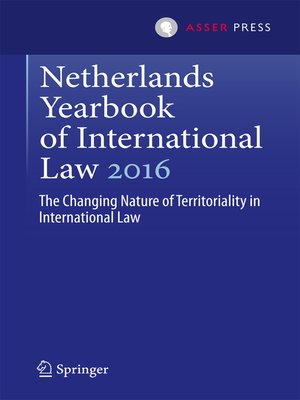Netherlands Yearbook of International Law 2016
ebook ∣ The Changing Nature of Territoriality in International Law · Netherlands Yearbook of International Law
By Martin Kuijer

Sign up to save your library
With an OverDrive account, you can save your favorite libraries for at-a-glance information about availability. Find out more about OverDrive accounts.
Find this title in Libby, the library reading app by OverDrive.



Search for a digital library with this title
Title found at these libraries:
| Library Name | Distance |
|---|---|
| Loading... |
International law holds a paradoxical position with territory. Most rules of international law are traditionally based on the notion of State territory, and territoriality still significantly shapes our contemporary legal system. At the same time, new developments have challenged territory as the main organising principle in international relations. Three trends in particular have affected the role of territoriality in international law: the move towards functional regimes, the rise of cosmopolitan projects claiming to transgress state boundaries, and the development of technologies resulting in the need to address intangible, non-territorial, phenomena. Yet, notwithstanding some profound changes, it remains impossible to think of international law without a territorial locus. If international law is undergoing changes, this implies a reconfiguration of territory, but not a move beyond it.
The Netherlands Yearbook of International Law was first published in 1970. It offers a forum for the publication of scholarly articles of a conceptual nature in a varying thematic area of public international law.







